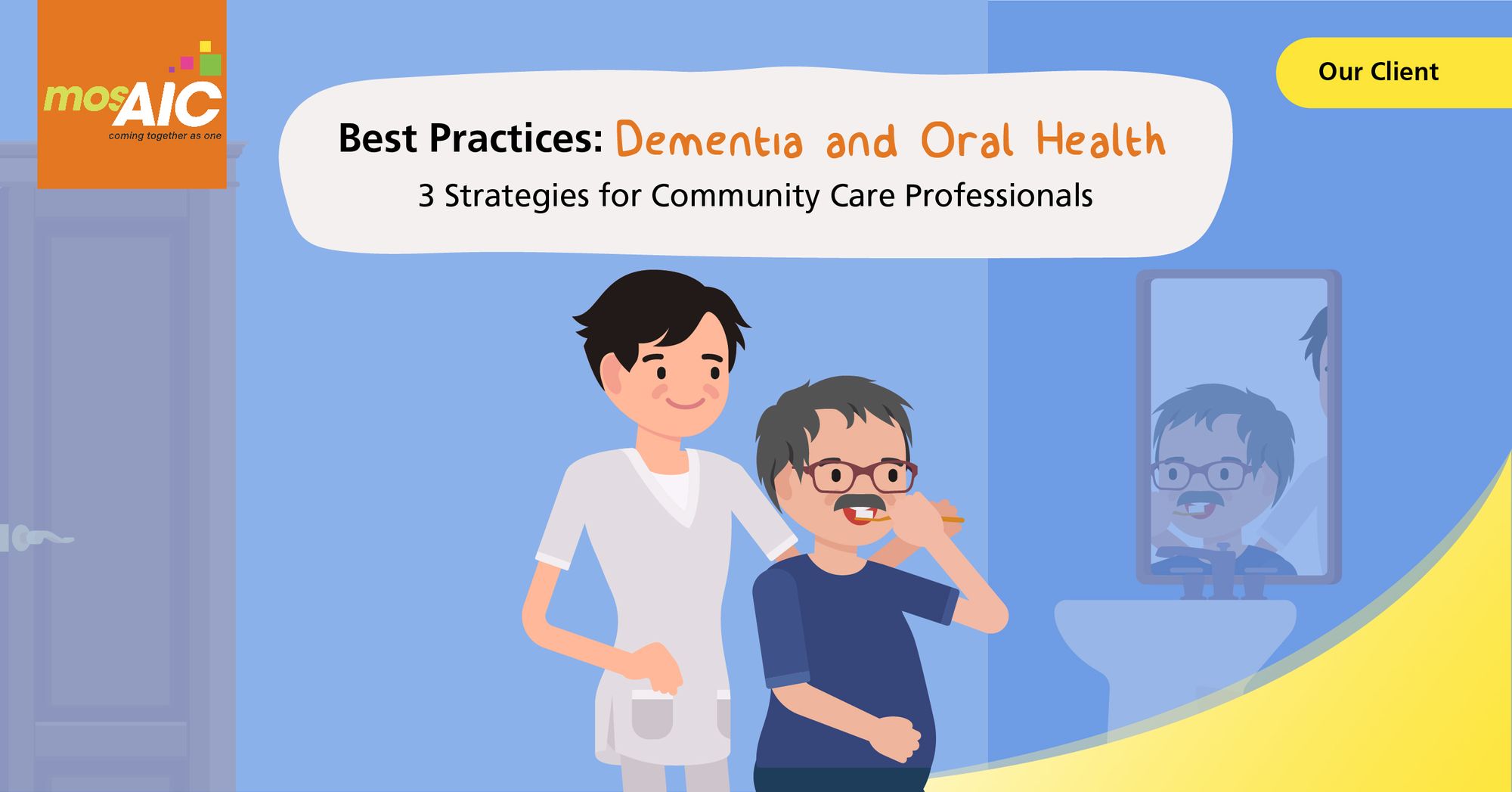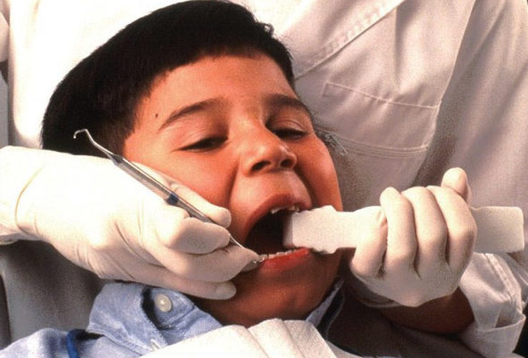Dementia and Oral Health: 3 Strategies for Community Care Professionals

Why Is Oral Hygiene important for Seniors in the Community Care setting?
Maintaining proper oral hygiene and dental care is important for all seniors. It is a crucial factor that affects one’s overall health and quality of life. In community care settings such as nursing homes, caring for seniors’ oral health can be challenging due to behavioural issues associated with conditions like dementia. Although nursing homes in Singapore have stepped up to improve dental services for seniors, these challenges may become more prevalent as the number of seniors with dementia continues to grow.
Oral Care Tips for Seniors with Dementia
We speak to Dr. Yang Jingrong and Dr. Foo Lean Heong from the National Dental Centre Singapore, to get tips on how community care professionals can overcome challenges faced in caring for seniors with cognitive impairment, such as dementia.
mosAIC: Could you share with our readers how dementia in seniors affects their oral health?
Dementia is usually characterised by a gradual decline in ability of the senior to perform self-care. This includes oral hygiene due to self-neglect and loss of cognitive and motor skills, resulting in greater plaque accumulation. Greater plaque accumulation can predispose seniors to developing gum disease (Periodontitis), leading to bleeding gums, abscess and shaky teeth.
Furthermore, seniors have poorer salivary buffering capacity against acidic attack from food and drink intake, which inevitably increases their risk of developing tooth decay (dental caries). Fortunately, this too can be prevented or slowed down by maintaining good oral hygiene with regular tooth brushing.
mosAIC: Some seniors with dementia may not be able to communicate their pain and discomfort well, and thus fail to get help. In these cases, what are some signs that care staff can look out for?
Staff can look out for changes in their behaviour such as poorer appetite, avoiding chewing in a particular area or reduced cooperation during brushing. Physical changes to look out for include swelling around the cheeks, jaws and neck which may indicate a dental infection. This should be attended to by a dentist as soon as possible. Additionally, staff can perform checks to look out for gums that bleed even without brushing, exudate pus, or have gum pimples (shown in picture below) as these indicate infection.
mosAIC: What are some strategies that Community Care professionals can use to improve the oral care process for residents with dementia?
Strategy 1: Perform oral care at a regular place and time
Introducing a routine can reduce anxiety and help seniors to adapt to a regular oral care procedure.
Firstly, having a routine enables the senior with dementia to know what to expect during the oral care procedure. It also allows the person with dementia to maintain his or her independence in oral care and become less resistant to doing it daily, which can help reduce stress on their caregiver.
Second, let seniors get into the habit of oral care by picking a suitable time and place. Oral care should be done twice per day, once in the day morning and once in the evening/night time after food intake. Remember that each senior is a unique individual, and the place and time should ideally be customised for them!
Strategy 2: Use tools such as foam mouth props
There are different types of mouth props recommended for different levels of cooperation.
For seniors with limited or poor cooperation levels, compressed foam props are recommended as they offer flexibility and just enough rigidity. After use, they can be cleaned with hot water and reused for the same person. These foam props should be replaced once the foam has been bitten through.

Photo Courtesy of Mobile Medical Systems
For seniors who are more cooperative, autoclavable mouth props can be used. These are sturdier than foam props, but require seniors to be able to open their mouths wider so that the prop can be positioned correctly between their teeth. As these props can be autoclaved, they can be reused for different persons.
Photo Courtesy of Mobile Medical Systems
Strategy 3: Use non-verbal cues such as tactile or visual cues
Simply showing a senior their toothbrush and asking “Shall we brush our teeth?” provides a visual cue that he or she associates with toothbrushing. Staff can also put up a toothbrushing pictorial guide showing seniors how to angulate the brush and which surfaces to concentrate on.
Tactile cues such as the hand-over-hand technique, involves the staff holding and guiding the senior’s hand to brush certain areas of the mouth that have been missed out. The hand-over-hand technique gives the senior a sense of independence. This allows them to feel that they are executing the task, albeit with assistance from a care staff.
Using visual and tactile cues in the care of seniors with dementia can be more helpful and successful than verbal reminders. As seniors with dementia often have a shorter attention span and impaired understanding, they may not be able to understand verbal instructions.
When using verbal instructions, staff should speak in short and simple sentences, accompanied by visual cues when necessary. If you need to repeat a sentence, repeat it in the exact form without modification.
Thank you for the detailed sharing, Dr. Yang and Dr. Foo!
Want to find more information?
Check out the Dental Care for People with Special Needs programme by Nanyang Polytechnic that will be suitable for healthcare assistants involved in caring for seniors with dementia.
The National Dental Centre Singapore also runs the Oral Health Education Program that targets senior nurses in charge of nursing teams. The course employs a train-the-trainers format, where participants go on to use the knowledge gained from the course to educate junior nurses in their institutions. Interested parties can email the course coordinator, Mr Teh Yi Kee at teh.yi.kee@ndcs.com.sg.
